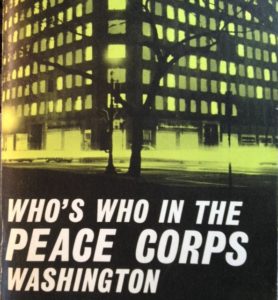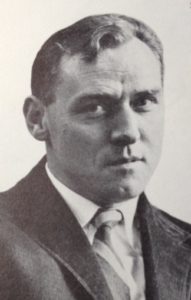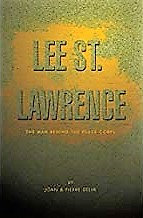Lee St. Lawrence, First Director of the Far East Regional Office
 World War II and the Army sent Lee St. Lawrence into combat duty in Europe. Somehow or other, he didn’t get to the United States again for 17 years.
World War II and the Army sent Lee St. Lawrence into combat duty in Europe. Somehow or other, he didn’t get to the United States again for 17 years.
Born in Brockton, Mass., on January 2, 1923, St. Lawrence worked his way through high school as a gandy dancer on the New York, New Haven and Hartford Railroad. He received a classical education in Greek and Latin at a Redemptorist Fathers junior college in Pennsylvania. After his war service, he took advantages of the GI. Bill and went on with his studies—overseas.
He earned extra money while at Oxford University with a job piling mail sacks in London’s Paddington Station. After additional work at Dublin’s Trinity Collee and the Institute de Science Politique in Paris, he launched a career as a free-lance writer for British newspapers.
Six months of traveling with gypsies in Spain yielded a Sunday feature series. Another six months of living among contra-bandits in the tiny republic of Andorra paid off with another Sunday series. He then signed as first mate aboard a 120-ton Brixton trawler engaged in trading in the Mediterranean.
When the ship was sunk off the Italian coast, St. Lawrence decided to give up both journalism and seafaring and he took his first Government job—as an interpreter for the European Defense Community. Assigned to international conferences in Paris, he was charged with offering simultaneous translations from French, German and Italian.
The U.S. Government become his sole employer when he joined the foreign aid administration as program officer in Yugoslavia. Two years in Belgrade were followed by three years as program officer in Laos and other nations of Southeast Asia. In Vientiane, the Laotian capital, he shared a house with Dr. Tom Dooley.
His next tour of duty took St. Lawrence to the Congo in the midst of the new nation’s most turbulent period, just after its independence. Assigned to set up the first economic mission to the Congo, he traveled the nation from one end to the other in the course of which he was beaten up twice by mutinous Congolese soldiers and came within one shout (to a nearby influential friend) of being hanged.
He negotiated an economic program with the late Patrice Lumumba. For this, he received the International Cooperation Administration Meritorious Service Award when he finally—after 17 years abroad—returned to the United States.
At ICA’s suggestion, St. Lawrence enrolled in The Johns Hopkins School for Advanced International Studies, and he was there as a student once again when he was asked to join the administrative staff of the newly established Peace Corps.
“I had to be convinced about the Peace Corps,” he said. “I had seen too many incompetent Americans abroad.” He added that he was “thoroughly convinced now. I think the Peace Corps represents the most exciting concept in foreign affairs the U.S. ever had.”
Within one month of his joining the new organization, he was back in Africa—to conclude successfully the first negotiations for an overseas contract. This was in Tanganyika, and St. Lawrence bushwhacked the country from end to end in order to see the exact conditions under which Volunteers would live there. It was an investigation without, as yet, a precedent, and St. Lawrence emerged with the first detailed program after extended talks with Tanganyika political leader Julius Nyerere, who was then Prime Minister.
Later on, he visited Tunisia to spell out the details of the first program in that nation. And since he went to Indonesia for the negotiations which resulted in the first Peace Corps program in that nation.
 In 2011, Pierre & Joan Delva self-published a 52 page kindle book entitled Lee St. Lawrence: The Man Behind the Peace Corps. While in email correspondence I told Pierre that Lee “did not” create the Peace Corps and, in fact, was brought into the agency by Shriver, they published their short ebook with its misleading title.
In 2011, Pierre & Joan Delva self-published a 52 page kindle book entitled Lee St. Lawrence: The Man Behind the Peace Corps. While in email correspondence I told Pierre that Lee “did not” create the Peace Corps and, in fact, was brought into the agency by Shriver, they published their short ebook with its misleading title.
“The rampageous
criticisms leveled
against the Peace
Corps a year ago
have been stilled.
This experiment in
sending capable young
Americans abroad to
share their abilities
with less fortunate
peoples have been a
bona fide success.”
–Santa Barbar
(Calif.) New-Press
No comments yet.
Add your comment